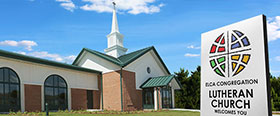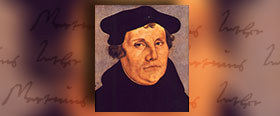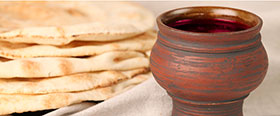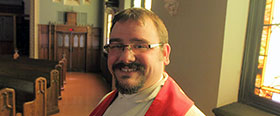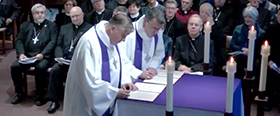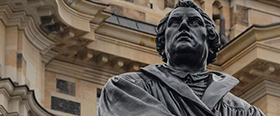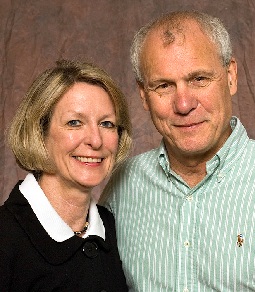The Rev. Sam and Cindy Wolff are ELCA missionaries in Kenya. Sam is pastor of the Nairobi International congregation and works with the Dagoretti Swahili Church. To support the Wolffs, or another of the ELCA’s nearly 250 missionaries, go to www.elca.org/missionarysponsorship.
We are often asked, “How do you celebrate Christmas in Kenya?” On a personal level, Cindy and I celebrate much the same way as we always have; worship, Cindy’s traditional Christmas Eve gathering (much more colorful than it was in Europe or the States), Christmas dinner with friends and a few gifts to exchange. This same formula is basically followed in the Kenya culture as well.
WORSHIP: In African society spirituality is an important part of life and it is reflected in the way people live and express joy. But here, Christmas worship is confined neither by date nor location. During this time, people gather together formally or informally to pray, sing, dance and celebrate the moment. Our congregation highlights include our Christmas Eve live nativity, with donkeys, goats, sheep and camels, all indigenous to Kenya. Children, many who are not part of our church, eagerly await this celebration so that they may be part of the Angel Choir.
GATHERINGS: Next to religion, relationship is the most important African treasure. But gathering can be problematic as travel is expensive, often dangerous and always difficult. This combined with the severe economic crisis will force many Kenyans to miss their cherished gathering, so they celebrate with neighbors or friends. But few Kenyans will be alone on Christmas, such is the wonderful web of African relationships.
CHRISTMAS DINNER: For those who can afford it, the meal will be centered around roast goat. Sweet tea or Tusker beer is the drink of choice, with children getting a soda. The second choice will be a rice and meat dish called pilau. But in many cases Christmas dinner will be the same foods as usual (greens, maize meal and beans), but on this day, perhaps a bit more will be available.
GIFT GIVING: Those who can afford it will generally give gifts, but the holiday is not nearly as commercial as it is in Europe or the Americas. The emphasis is more on the religious aspect of celebrating the birth of Jesus than it is on gift giving. The most common thing bought at Christmas is a new set of clothes. Many Africans are not able to afford presents for their children and there aren’t too many toy stores in rural Africa anyway. If gifts are exchanged, they are usually school books, soap, cloth, candles and other practical goods.
DIFFERENT AND YET THE SAME: Rich or poor, east or west, turkey or goat, eggnog or Tusker, we join together to celebrate the birth of our Saviour.
Blessed Christmas,
Sam and Cindy

